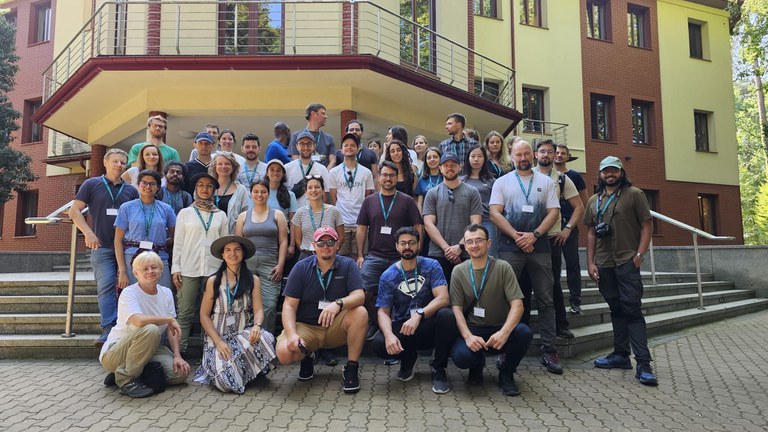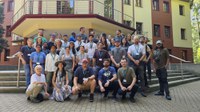Interdisciplinary Summer School on Forest Ecosystems: A Fusion of Technology, Models, and Nature in Warsaw
 The "Interdisciplinary Summer School on Forest Ecosystems" was held from August 26th to 30th, 2024, at the Forest Research Institute in Warsaw, Poland. The Summer School, organised by two COST Actions, 3DForEcoTech and PROCLIAS, attracted 37 participants from 18 different countries. This diverse group of people—21 supported by 3DForEcoTech, 12 by PROCLIAS, and four self-financed—came together with a common goal: exploring cutting-edge close-range remote sensing technologies and their application in forest modelling.
The "Interdisciplinary Summer School on Forest Ecosystems" was held from August 26th to 30th, 2024, at the Forest Research Institute in Warsaw, Poland. The Summer School, organised by two COST Actions, 3DForEcoTech and PROCLIAS, attracted 37 participants from 18 different countries. This diverse group of people—21 supported by 3DForEcoTech, 12 by PROCLIAS, and four self-financed—came together with a common goal: exploring cutting-edge close-range remote sensing technologies and their application in forest modelling.
The first day focused on close-range remote sensing technologies, which are critical for analysing forest ecosystems. Participants not only learnt the theory behind these technologies, but they also gained hands-on experience by working with real-world data collected from forests.
The second day introduced participants to three forest ecosystem models, each of which was designed to make the most use of data obtained through remote sensing technology. The models consisted of the stand model 3PG, the cohort model 4C, and the individual tree scale model iLand. Again, it wasn't simply theoretical learning; participants were able to interact with these models, evaluating their capabilities and understanding how remote sensing data might power these systems.
On the third day, the participants were taken out of the classroom and into the heart of nature. They visited the forest near the Forest Research Institute, where experts guided them through the intricacies of forest structure. This day offered more than just a scenic escape—it provided a chance to use mobile laser scanners and terrestrial laser scanners in a real-world setting, deepening their understanding of how remote sensing technology works in the field.
Later that day, the participants were divided into four groups for collaborative projects. Each group selected one of four topics for their focus over the next two days. One group worked on Carbon Sequestration, two groups chose Biodiversity Assessment, and the last group focused on the Impact of Drought on Forest Ecosystem Dynamics. For each of these projects, the teams used remote sensing data to initialize their selected models, exploring how this data could drive outputs related to forest ecosystems. This hands-on approach highlighted the immense potential of remote sensing in shaping the future of forest ecosystem modeling.
The final day saw all four groups present their findings, showcasing the exciting and varied ways remote sensing data can be used in ecosystem studies. These presentations not only reflected the participants' hard work but also underlined the potential for continued collaboration in future research.
In between the intensive learning and research, the organizers made sure to include time for fun and relaxation. Social activities like a BBQ, an evening trip to Warsaw’s picturesque Old Town, and even a Disco night were arranged. These activities gave participants the chance to unwind, connect, and learn about each other's cultures, fostering both friendships and potential professional collaborations.
The Summer School was a resounding success, blending interdisciplinary learning, practical experience, and cultural exchange. It offered a glimpse into the future of forest ecosystem studies, highlighting how the fusion of remote sensing technology and forest modeling can lead to impactful discoveries.
Thanks to the EU COST Association and COST Action CA19139 PROCLIAS for financing this event.


